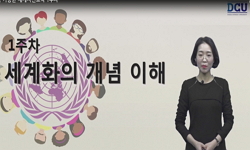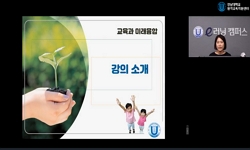이 연구의 목적은 인성교육의 개념과 의미를 살펴본 후 S대학교 교양 교과목 『인성교육론』 개발 및 운영 과정에서 드러난 가능성과 한계를 짚어 보고, 대학 인성교육의 발전 방향에 대한 ...
http://chineseinput.net/에서 pinyin(병음)방식으로 중국어를 변환할 수 있습니다.
변환된 중국어를 복사하여 사용하시면 됩니다.
- 中文 을 입력하시려면 zhongwen을 입력하시고 space를누르시면됩니다.
- 北京 을 입력하시려면 beijing을 입력하시고 space를 누르시면 됩니다.
https://www.riss.kr/link?id=A109142842
- 저자
- 발행기관
- 학술지명
- 권호사항
-
발행연도
2024
-
작성언어
-
- 주제어
-
KDC
001
-
등재정보
KCI등재후보
-
자료형태
학술저널
-
수록면
23-46(24쪽)
- 제공처
-
0
상세조회 -
0
다운로드
부가정보
국문 초록 (Abstract)
이 연구의 목적은 인성교육의 개념과 의미를 살펴본 후 S대학교 교양 교과목 『인성교육론』 개발 및 운영 과정에서 드러난 가능성과 한계를 짚어 보고, 대학 인성교육의 발전 방향에 대한 전망을 제시하는 데 있다. 이를 위하여 『인성교육론』의 내용 및 교재 개발 과정을 자세하게 살펴본 후 실제 인성교육 수업 진행과 수업 방법 및 평가 과정을 고찰하였다.
이 연구에서 인성교육을 “인간을 인간답게 기르는 교육”이라는 의미에서 ‘인간성 교육’으로 재개념화하였다. 이런 개념 정의는 인성교육이 개인과 공동체를 포용함으로써 교육이 추구하는 자율, 배려, 연대의 정신을 구현하여 궁극적으로 인간성 발달에 도움을 줄 것으로 보았다. 사례 연구에서 분명하게 드러난 바와 같이 대학 인성교육도 개인의 자아실현과 공동체 발전에 기여하는 방향으로 나가야 한다는 것이다. 개인적 관점에서 대학 인성교육은 건강한 몸의 보존과 육성 및 성교육을 포함하는 신체교육, 원만한 도덕성과 감성을 길러주는 마음교육, 지혜와 창조력 육성에 초점을 둔 지성교육을 내용으로 설정할 필요가 있다. 공동체 관점에서도 대학 인성교육은 기초질서교육 및 대화와 소통 능력을 길러주는 민주시민교육과 상호문화성 혹은 글로벌 시민 역량을 함양하는 세계시민교육으로 그 범위가 확장되어야 할 것이다.
인성교육의 내용에 부합하도록 인성교육의 방법적 원리 또한 주체성과 시민성을 함양하는 양대 축을 기점으로 정립될 필요가 있다. 민주사회를 살아가는 각 개인이 자신의 주체적 역량을 키우고, 사회적으로도 공동체의 한 구성원으로 시민적 역량을 강화하는 방향으로 대학 인성교육이 나아가야 할 것이다. 학생들의 건전한 사회성 발달이 대학 인성교육의 중요한 요소로 대두된다는 점에서 추후 사회·정서학습(SEL; Social Emotional Learning)을 적극 고려할 필요가 있다.
다국어 초록 (Multilingual Abstract)
The purpose of this study is to examine the concept and meaning of character education, and then to find the possibilities and limitations revealed during the development and operation of 『Theory of Character Education』 as a liberal arts course at...
The purpose of this study is to examine the concept and meaning of character education, and then to find the possibilities and limitations revealed during the development and operation of 『Theory of Character Education』 as a liberal arts course at S University, and to suggest its own outlook on the direction of development of character education in universities. To this end, the contents of 『Theory of Character Education』 and the development process of teaching materials were examined in detail, and then the actual conduct of character education classes, teaching methods, and evaluation processes were critically reflected.
In this study, character education was reconceptualized as “humanity education” in the sense of “education that cultivates human beings as human beings”. This conceptualization suggests that character education embraces the individual and the community, embodying the spirit of autonomy, caring, and solidarity that education strives for, and ultimately contributing to the development of humanity. As the case studies clearly demonstrate, university character education should also contribute to individual self-realization and community development. From an individual perspective, university character education needs to include “Mom” education, which includes the preservation and development of a healthy body and sex education; mind education, which aims to foster healthy emotions and morality; and intellectual education, which focuses on fostering wisdom and creativity. From a community perspective, university character education should be expanded to include basic order education, civil and civic education to foster dialog and communication skills, and global citizenship education to foster interculturalism or global citizenship.
In line with the content of character education, the methodological principles of character education need to be established based on the two pillars of fostering subjectivity and citizenship. In a democratic society, each individual should develop their own subjective capabilities and strengthen their civic capabilities as a member of the community. As the healthy social development of students is emerging as an important element of college character education, it is necessary to actively consider social-emotional learning (SEL) in the future.
목차 (Table of Contents)
- Ⅰ. 들어가는 말
- Ⅱ. 인성 및 인성교육의 개념과 의미
- Ⅲ. 인성교육 프로그램 유형 및 『인성교육론』 교재 개발
- Ⅳ. 『인성교육론』 수업 운영
- Ⅴ. 나오는 말
- Ⅰ. 들어가는 말
- Ⅱ. 인성 및 인성교육의 개념과 의미
- Ⅲ. 인성교육 프로그램 유형 및 『인성교육론』 교재 개발
- Ⅳ. 『인성교육론』 수업 운영
- Ⅴ. 나오는 말
- 참고문헌
동일학술지(권/호) 다른 논문
-
교수학습에 관한 전통주의와 구성주의 접근으로 살펴본 예비 화학교사의 신념 탐색
- 순천대학교 교육과학연구소
- 김현정(Hyunjung Kim)
- 2024
- KCI등재후보
-
고교학점제 선도지구 지역특화 공동 교육과정 운영 실행 연구
- 순천대학교 교육과학연구소
- 강형일(Hyung-Yeel Kahng)
- 2024
- KCI등재후보
-
EBS AI 펭톡 기반 어휘학습에 대한 초등영어학습자들의 반응 조사
- 순천대학교 교육과학연구소
- 최석현(Seokhyeon Choi)
- 2024
- KCI등재후보
-
- 순천대학교 교육과학연구소
- 편집부
- 2024
- KCI등재후보





 스콜라
스콜라






